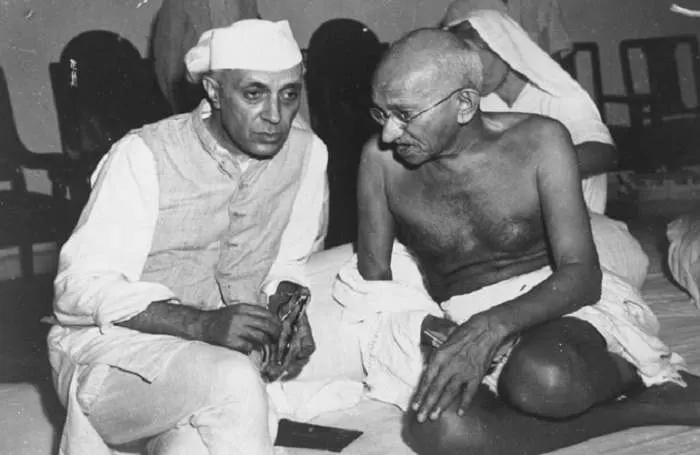| Title | Jawaharlal Nehru: A Principal Advocate of Secularism in Modern India |
|---|---|
| Author | Towseef Ganai |
| Category | Studies about Jawaharlal Nehru |
| Number of Pages | 7 |
| Language | English |
| File Size | 402 KB |
| File Type | |
| Country of Publication | India |
| Main Topics | Abstract, Introduction, Principal Advocates of Secular Ideology in Modern India, The Ideas of Nehru about the Secularism, Present Scenario of Secularism in India, Conclusion, References |
Summary Note of this Document
Explore the significant influence of Jawaharlal Nehru to mold India's secular identity. With secularism as the core of the world's largest democracy, this paper by Towseef Ahmad Ganai delves into the past, the present, and the future of India with religious equality as the main theme. This study is perfect for students, history buffs, and anyone who has an interest in Indian politics and the concept of equal rights in religion.
Introduction to Secularism
In the past, rulers all over the globe, would persecute or force conversions upon people of different religions. On the other hand, current secular states such as the United States (the first secular country with a Christian majority) keep the door wide open for freedom of belief without any form of discrimination. India's Constitution guarantees it through:
- Article 15: No discrimination shall be allowed on the base of religion.
- Article 25: Freedom of conscience and the right to propagate, practice, and profess religion.
- Article 27: No expenditure from the Consolidated Fund of India shall be made for the promotion or maintenance of any religion.
- Article 28: No religious instruction in educational institutions wholly maintained out of state funds.
Secularism is the basic structural principle of India, having over 1.2 billion inhabitants belonging to various religious communities. The state is still neutral and therefore, it keeps the flame of tolerance alive in the midst of communalism and fundamentalism issues. The author labels religion as "faith and belief in the Creator (GOD) and honoring prophets' teachings."
Principal Advocates of Secular Ideology
According to the document, these are the main figures for religious tolerance:
- Mahatma Gandhi: Practiced secularism based on human rights and honesty with all community members.
- Maulana Abul Kalam Azad: Insisted that religious practice could be performed without separating from one's homeland; he picked India over Pakistan.
- Jawaharlal Nehru: The most notable supporter, came from a secular family background, was influenced by teachers such as Ferdinand T. Brooks, Annie Besant, and Munshi Mubarak Ali, and was inspired by English philosophy, Buddhism, and Jewish interactions.
Nehru rejected British communalism and worked for Hindu-Muslim unity through the 1916 Lucknow Pact at Anand Bhawan. In 1929, he gave the Congress policies for future India, which included freedom of religion, equality, socialism, and secularism- all were approved at the 1931 Karachi session chaired by S.V. Patel.
His secularism had elements of scientific humanism and changed India from a caste-based society to a nationmstate that respects diversity. Nehru never used religion to get votes but saw humanistic values as superior to orthodoxies. His daughter, Indira Gandhi, accomplished his vision with the 42 nd Amendment in 1976, which first mentioned the word "Secular" in the Preamble of India.
 |
Present Scenario of Secularism in India
In a secular society, religion and politics remain separate entities but religion still influences politics directly or indirectly. India was made a constitutionally secular country in 1976 and that brought minorities a lot of relief along with many provisions for their rights.
Post-2014 under NDA (defeating UPA in 2014 and 2019 elections), changes include:
- Planning Commission to NITI Aayog (2015).
- Goods and Services Tax (2016).
- Triple Talaq Bill (July 2019).
- Babri Masjid-Ram Janmabhoomi verdict (November 2019).
- Citizenship Amendment Act (2019).
- Abrogation of Articles 35A and 370 (August 2019), dividing Jammu and Kashmir into Union Territories.
Minorities (especially Muslims, 13% of the population) are interpreting these as threats to secularism and thereby criticizing them as eroders of Indian democratic fabric.
Conclusion
Secularism is absolutely necessary to maintain national peace in India which is a home to various religions and cultures. Politics and religion together are like fire and water yet they cannot be separated entirely from each other. The country has had a well-documented history of communal incidents in the past but secularism is the only way through which peaceful co-existence could be possible at present/ now. A few such recommendations are re-designing education to reflect secular ideals, providing balanced history textbooks, and also commemorating the likes of Gandhi and Nehru. The Supreme Court as an institution and the citizens of the country must not allow the declaration of India as a secular nation to be taken away from their hands.
References
The paper makes reference to the literatures of authors such as H.H. Das, S. Yerankar, S. Tara, M.M.A. Rizvi, A. Majid, B. Chandra, Iain McLean & Alistair McMillan, Donald Eugene Smith, Jawaharlal Nehru (anthology and autobiography), and Vivek Kumar Srivastava.
This summarization counts with targeted keywords like "Jawaharlal Nehru secularism," "Indian secular state," and "secularism in modern India" that facilitate its search visibility on the topics of Indian History and Politics. Names are put in bold to draw attention.
